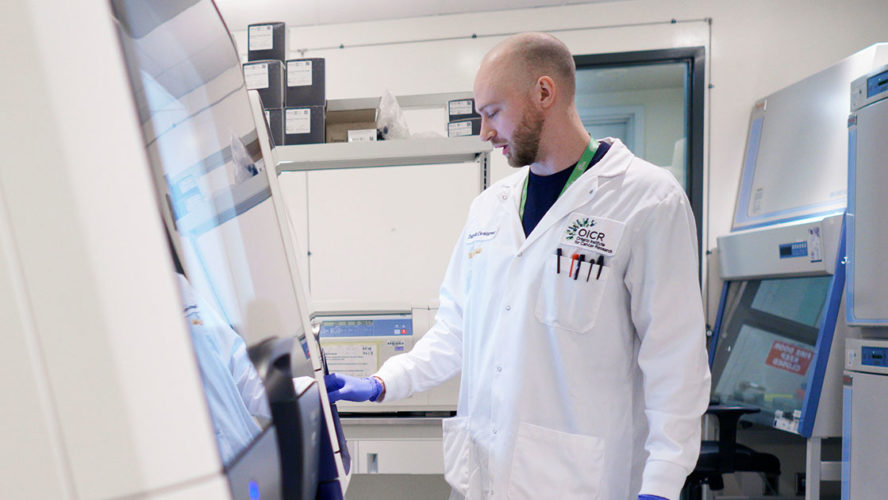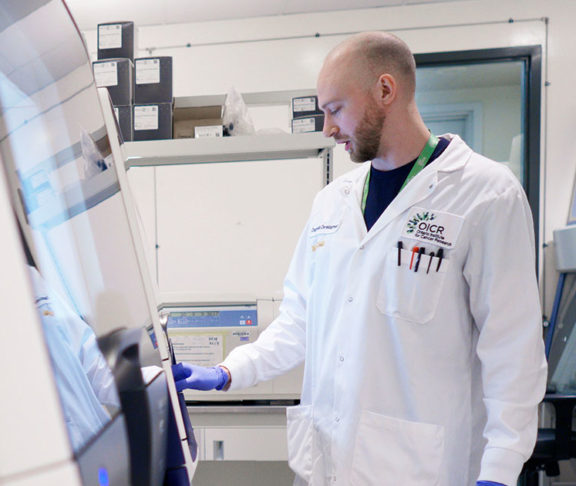
Dr. Laszlo Radvanyi
President and Scientific Director, Ontario Institute for Cancer Research
OICR is dedicated to discovering and accelerating innovative cancer treatments for patients.
After 30 years in academia, pharma, and biotech researching the relationship between cancer and the immune system, Dr. Laszlo Radvanyi says oncology is poised to enter a new era of better leveraging our immune system against cancer.
Although decades of research have resulted in a promising new kind of treatment called immunotherapy, these therapies have been aimed mostly at treating late-stage, highly metastatic cancer patients. However, new research shows that harnessing the immune system in earlier stages of cancer could be more effective.
“It has become evident that early cancer lesions that can progress to invasive cancer shape the quality and direction of the immune response much earlier in the disease process than initially thought,” says Dr. Radvanyi. “This can ‘hard wire’ an immune response very early on that can either inhibit or promote tumour progression.”
Dr. Radvanyi is President and Scientific Director of the Ontario Institute for Cancer Research (OICR), which works with partners to accelerate the development of cancer research discoveries and propel them from the lab to the clinic.
OICR specializes in earlier stages of cancer where projects focus on early tumour-immune interactions and develop ways to activate the immune system against cancer. One exciting new OICR clinical program is its Window-of-Opportunity (WOO) Network, which recently launched two new clinical trials studying immunotherapies. WOO trials analyze how new agents activate the anti-cancer immune response before surgery after primary diagnosis in a comprehensive way that informs the development of earlier interventions to cure cancer or stop further spread.
These trials can help develop more effective treatment options for future generations of cancer patients, promising to eradicate cancer at an earlier stage before the cancer spreads and becomes resistant to a cure.
“Studying cancers before surgery may provide insights into new ways to identify cancer, measure how cancer cells respond to treatment, and understand how a new therapy works,” says Dr. Radvanyi.



